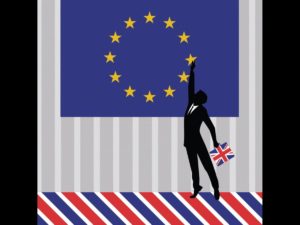Brexit: tijd voor een andere Europese samenwerking
De Partij voor de Dieren vindt dat het Brexit niet zonder gevolgen kan blijven voor de wijze waarop in Europa wordt samengewerkt. “De uitslag van het Britse referendum vraagt om nieuwe bezinning op de voortdenderende trein van Europese integratie en machtsoverdracht“, zegt Marianne Thieme.

De stem van veel Britten was niet gericht tegen Europa, maar tegen de wijze waarop nu vanuit Brussel geregeerd wordt op centralistische en weinig democratische wijze. Toen duidelijk werd dat de Euro niet fungeert als bindmiddel, maar als splijtzwam binnen Europa, was de reactie van veel traditionele politieke partijen dat om die reden ingezet zou moeten worden op versnelde verdergaande integratie.
Dat de kiezers daar anders over denken dan de oude politiek werd niet alleen duidelijk bij het Nederlandse referendum over het associatieverdrag, maar ook bij het Brexit referendum.
De Partij voor de Dieren zal in het Kamerdebat over Brexit vragen om onderzoek naar nieuwe vormen van Europese samenwerking, zowel op politiek als monetair vlak.
The Party for the Animals believes Brexit cannot leave cooperation within the EU unaffected. “The outcome of the British referendum calls for a new period of reflection on the ever onward-rushing train of European integration and transfer of power,” says Marianne Thieme.

Many Britons did not vote against Europe, but against the centralised and not very democratic way in which Europe is governed in Brussels. When it became clear that the euro served as a divisive element rather than a binding agent within Europe, many traditional political parties claimed that a stronger emphasis should be put on accelerated and more intensive integration.
That voters did not share this opinion of the old politics not only became clear during the Dutch referendum on the association agreement, but also from the results of the UK´s EU referendum (Brexit).
In the parliamentary debate on Brexit, the Party for the Animals will request research into new forms of European cooperation, on a political as well as a monetary level.